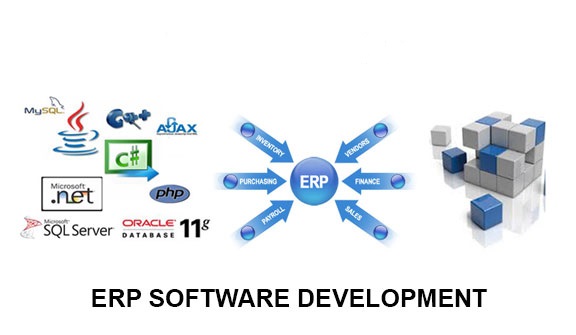ERP (Enterprise Resource Planning) software is a comprehensive system designed to integrate and manage the core business processes of an organization. It centralizes data across various departments, such as finance, human resources, supply chain, manufacturing, procurement, and customer relationship management (CRM), to improve efficiency, collaboration, and decision-making.

Centralized Data Management: All business functions share a common database, ensuring that data is consistent and up-to-date across the organization.
Automation: ERP automates repetitive tasks such as invoicing, inventory management, payroll, and order processing, reducing manual effort and errors.
Real-Time Analytics: Provides insights and reports in real-time to help in monitoring performance, forecasting, and making data-driven decisions.
Modular Architecture: ERP systems typically consist of modules that cater to specific functions (e.g., accounting, sales, procurement), allowing businesses to customize and expand the system based on their needs.
Financial Management: Tracks financial transactions, budgets, and reports to give a clear view of the company's financial health.
Supply Chain Management (SCM): Manages procurement, warehousing, logistics, and distribution to streamline supply chain operations.
Customer Relationship Management (CRM): Helps manage customer data, sales processes, and interactions to improve customer service and drive sales growth.
Inventory Management: Optimizes inventory levels, tracking stock in real-time to prevent shortages or excess inventory.
Human Resource Management (HRM): Automates HR functions like payroll, recruitment, employee management, and performance tracking.
Compliance and Security: Ensures that the organization meets industry regulations and standards, while safeguarding sensitive business data through built-in security protocols.
Increased Efficiency: By streamlining business processes and providing integrated tools, ERP improves operational efficiency and productivity.
Better Decision-Making: Centralized data and advanced analytics provide a single source of truth, helping leaders make informed decisions.
Cost Savings: Reduces operational costs through automation, improved resource management, and optimized processes.
Scalability: ERP systems can grow with the business, adding new modules and functionalities as the organization expands.
Improved Collaboration: By providing access to real-time data across departments, ERP fosters better communication and collaboration.
ERP systems are used across industries, from manufacturing and retail to healthcare and education, providing tailored solutions to meet specific industry requirements.